Working hard while sleeping rough
Colombia has one of the highest levels of poverty and income inequality in Latin America, preventing more than half of the population from accessing formal employment and social protection.
Colombia has one of the highest levels of poverty and income inequality in Latin America, preventing more than half of the population from accessing formal employment and social protection.
Colombia has one of the highest levels of poverty and income inequality in Latin America, preventing more than half of the population from accessing formal employment and social protection.
Colombians inheriting poverty for more than 10 generations is also a reflection of the lack of educational opportunities. Informal recyclers and waste pickers make a living from roaming the streets of Bogotá on a daily basis and spend their entire lives in this field. Many of them came from Venezuela and made the journey to Colombia on foot.
“If you keep your mind strong you can survive, always.”
William
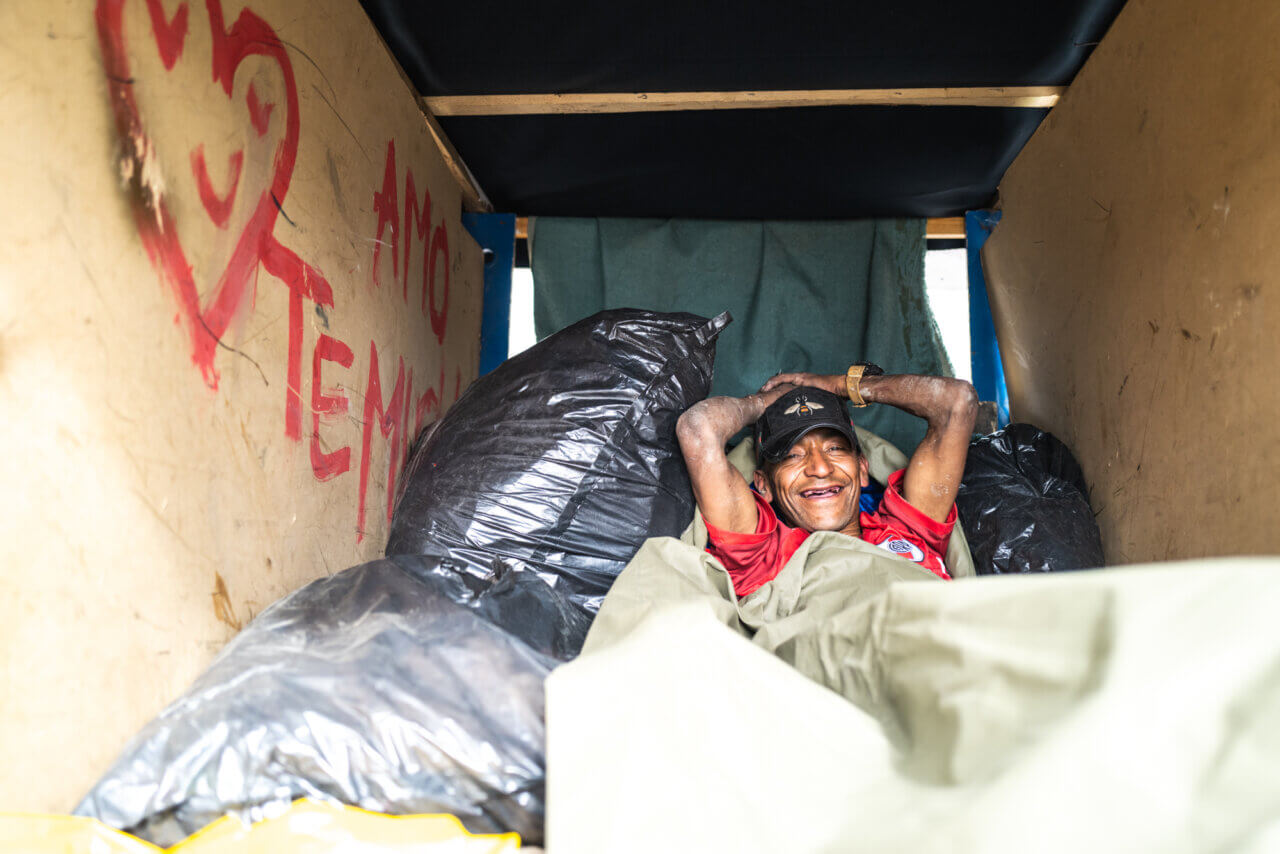
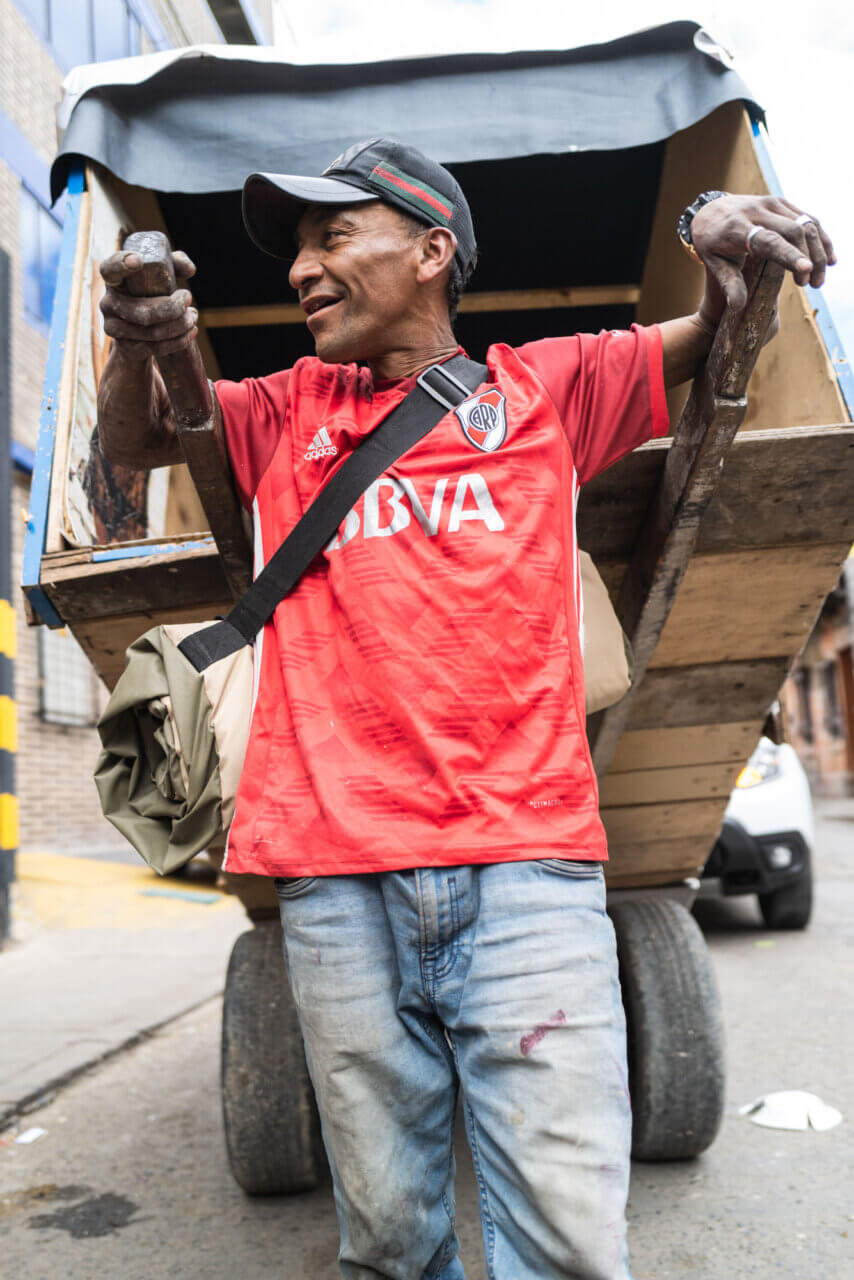
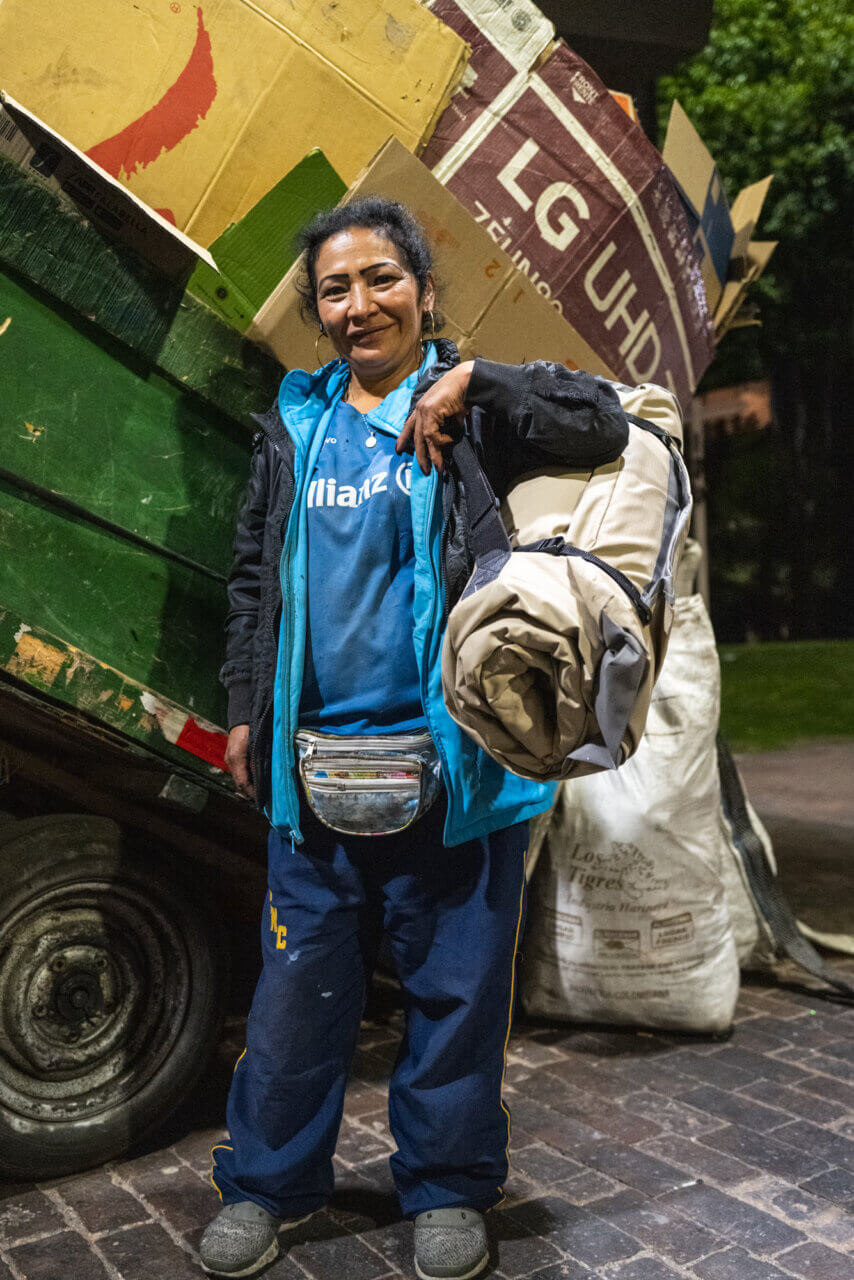
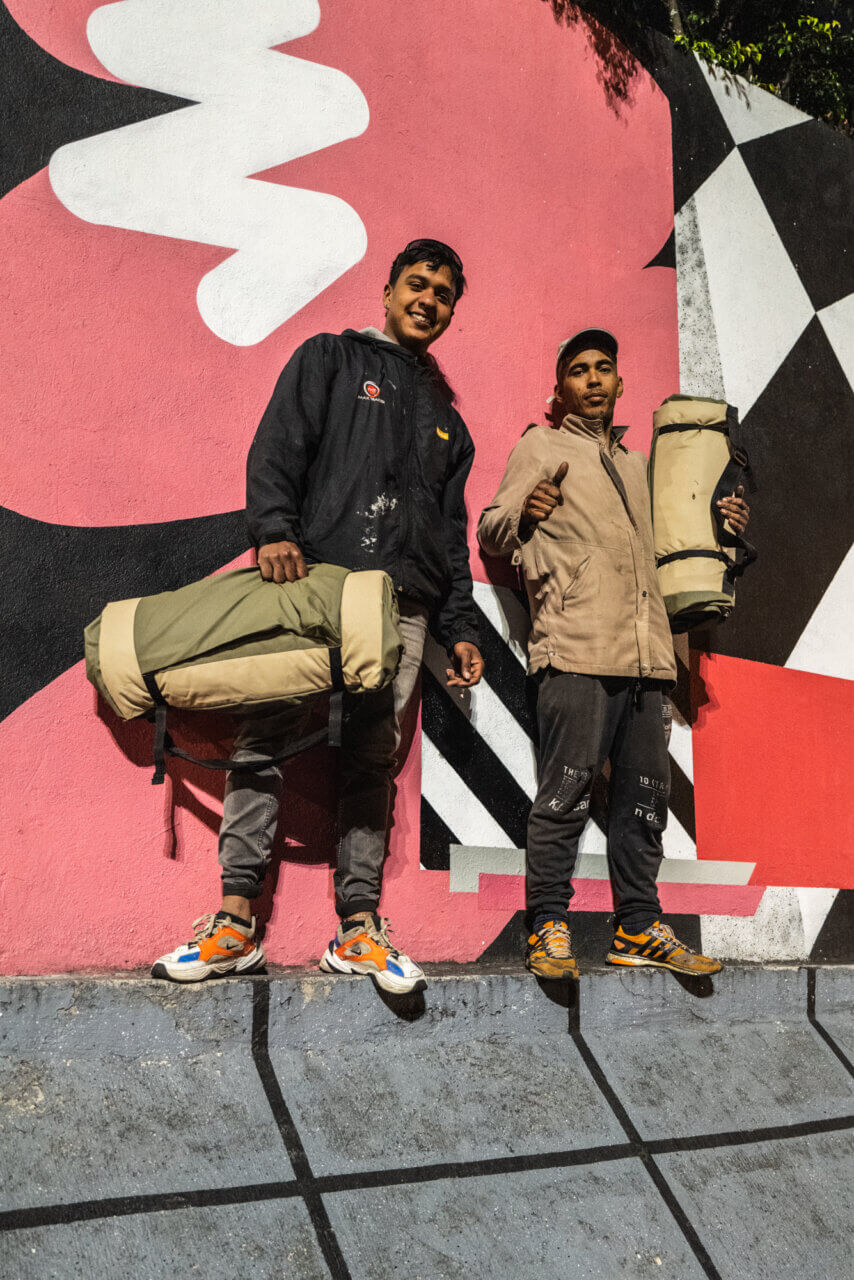
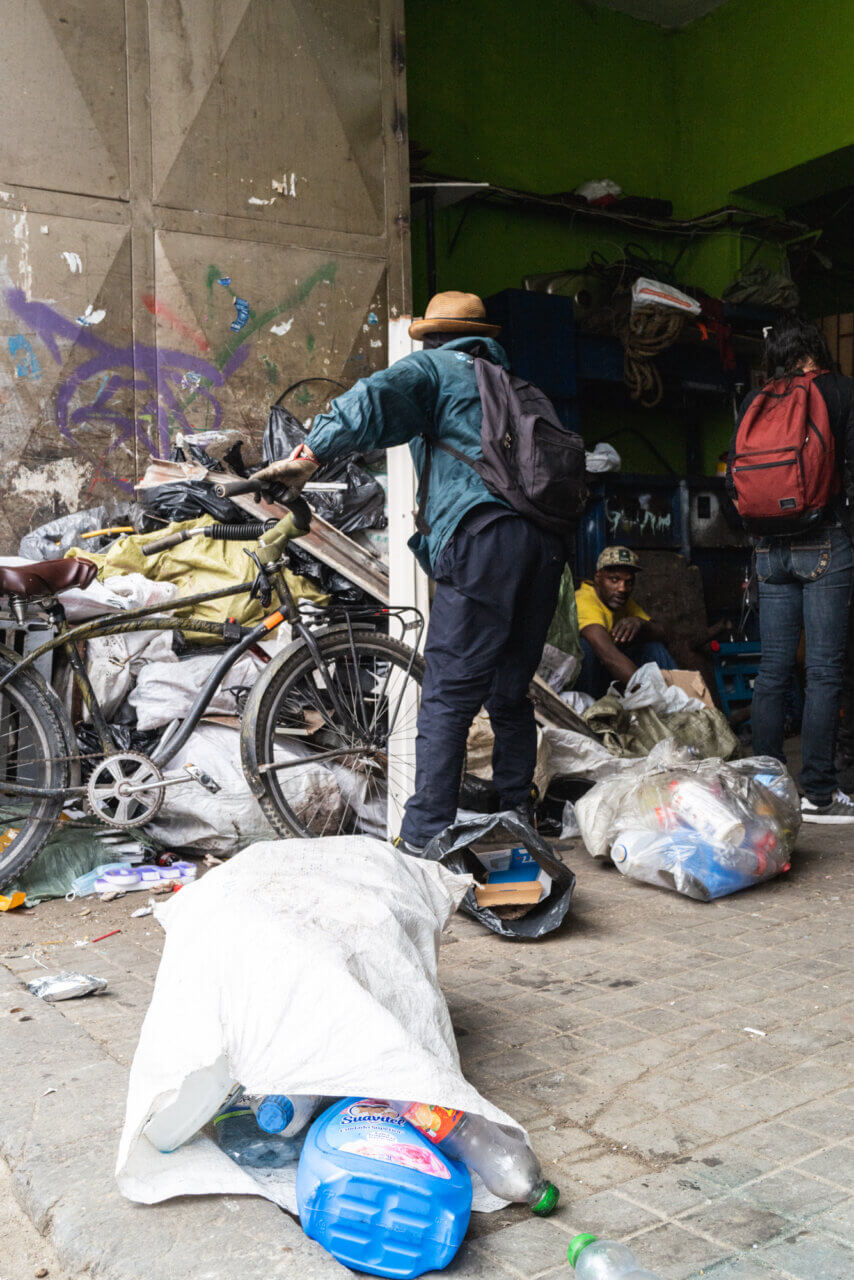
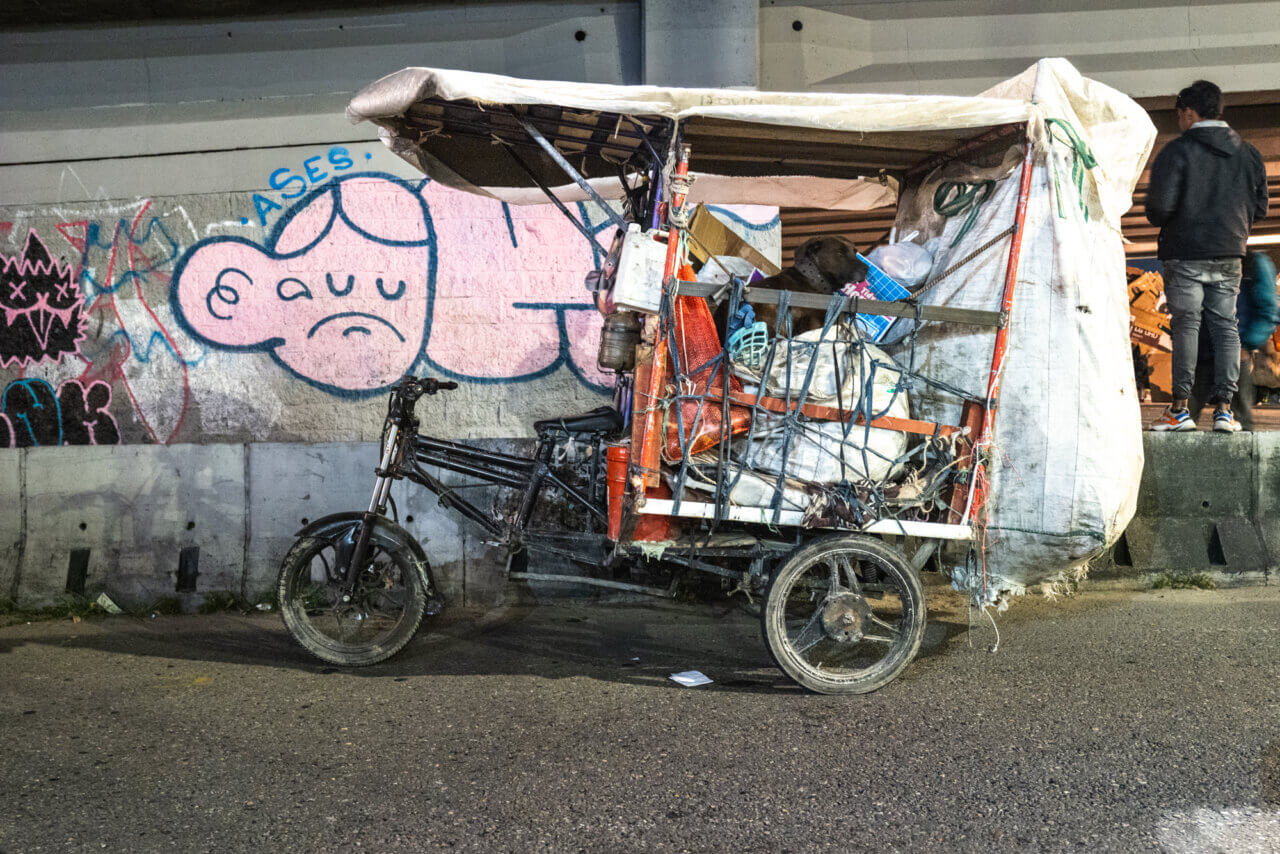
RECYCLING
When the evening comes and the degrees drop below zero, only the harsh cold is left lingering in the night, together with men, women, and children trying to make ends meet.
We are gathered under a bridge, in what we are told is a “more fortunate” part of the city, where the local recyclers are finishing their day of looking for any sign of waste plastic, glass bottles, and cardboard.
Dozens of recycling carts pull up to separate what they found, so they can resell it for a handful of pesos.
Whole families participate in the endeavor; the parents wade through the garbage as little ones wait in the cart, playing among the rubbish. Recycling became a generational pattern of making an income that can serve to have shelter and food at least for a day.
To carry so much waste; Bogota produces nearly 7,500 tons of waste every day… is a burden many must carry on their shoulders, figuratively and literally. As few can afford a motorized vehicle, it is people who do the heavy lifting, pulling their carts for kilometers every day. This way, 16 percent of the waste in Bogota is recycled.
“In 2020, according to the Bogota city council, 25,000 of the capital’s eight million inhabitants worked as informal recyclers.”
– Recent report prepared by the Organization for Economic Cooperation
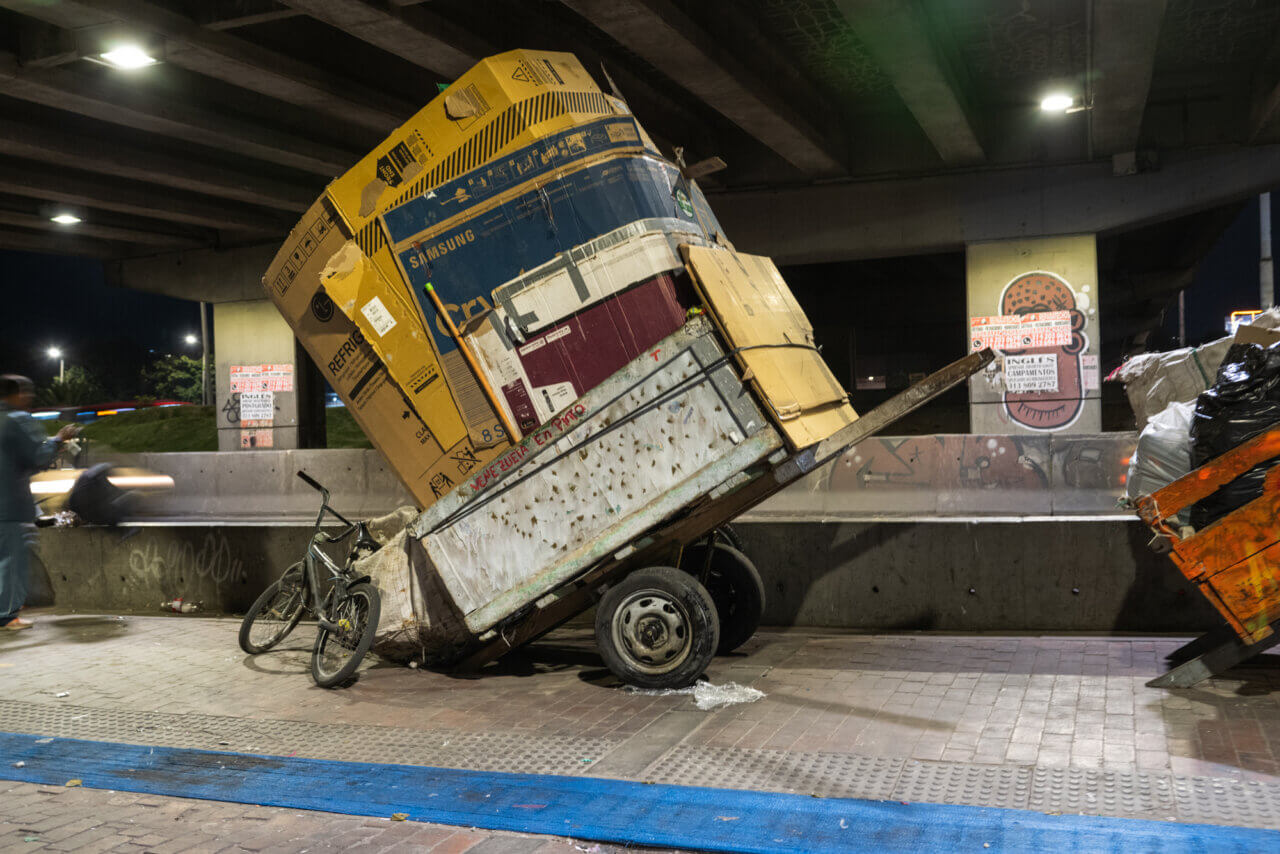
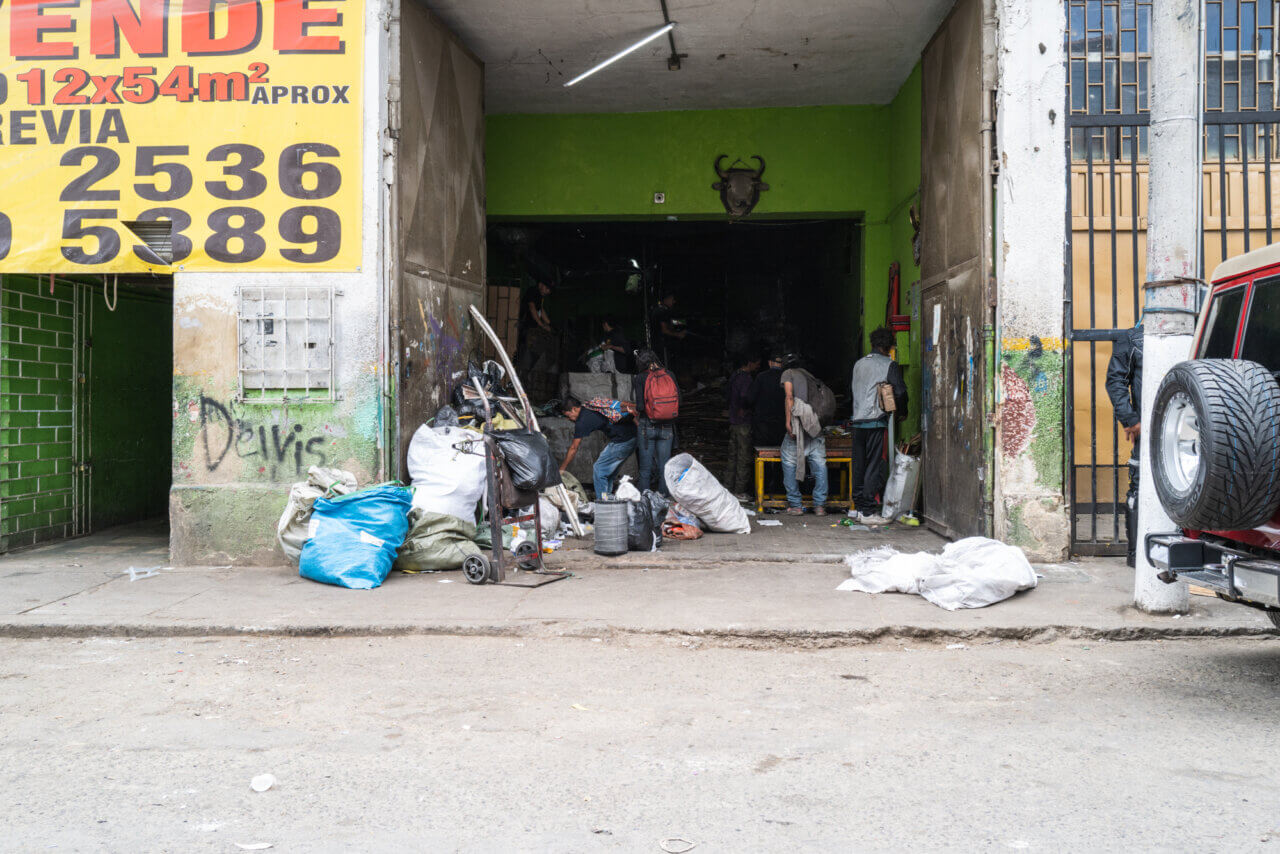
COLOMBIA
Close to 2.5 million Venezuelans are living in Colombia, having fled their home country’s economic collapse and political crisis. While Bogotá has generously offered residency rights, many migrants and refugees nevertheless face extreme hardship and have few resources to sustain themselves.
More than half of the Venezuelan population in Colombia lacks regular status, affecting their ability to access essential services, protection, and assistance. Many of those who come here live on the street, and recycling allows them to have a small income.
“Unemployment is highly present on the streets of Colombia, where social unrest prevails since 2020 due to COVID-19.”
– Recent report prepared by the Organization for Economic Cooperation
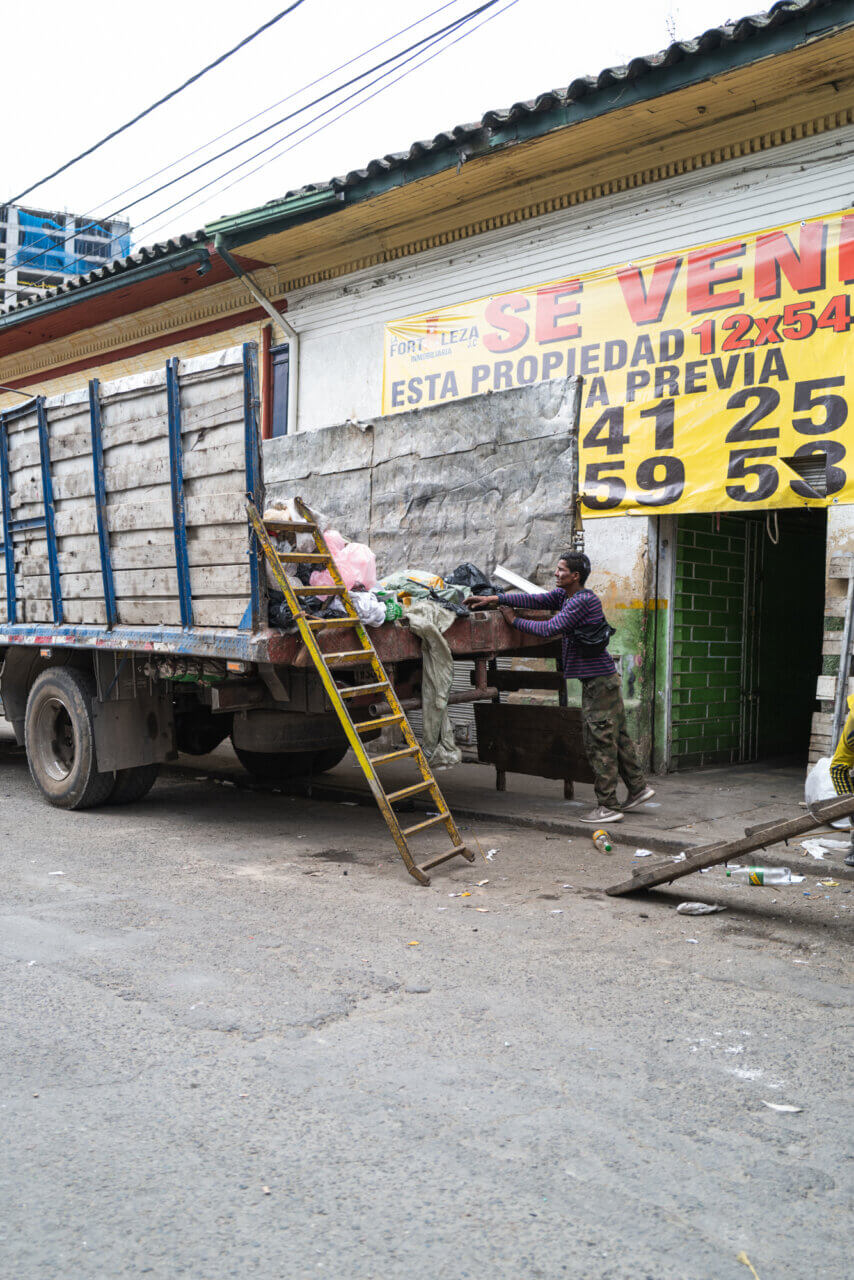
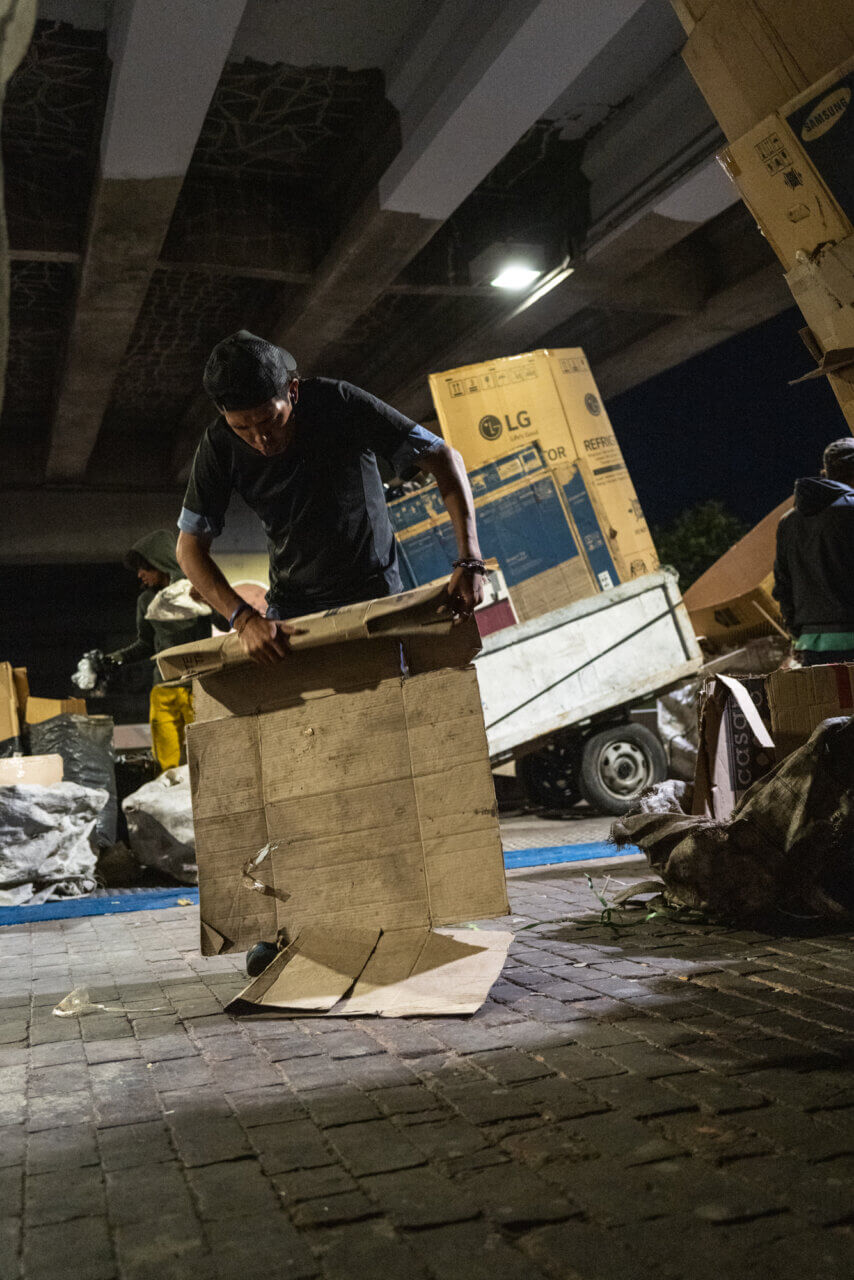
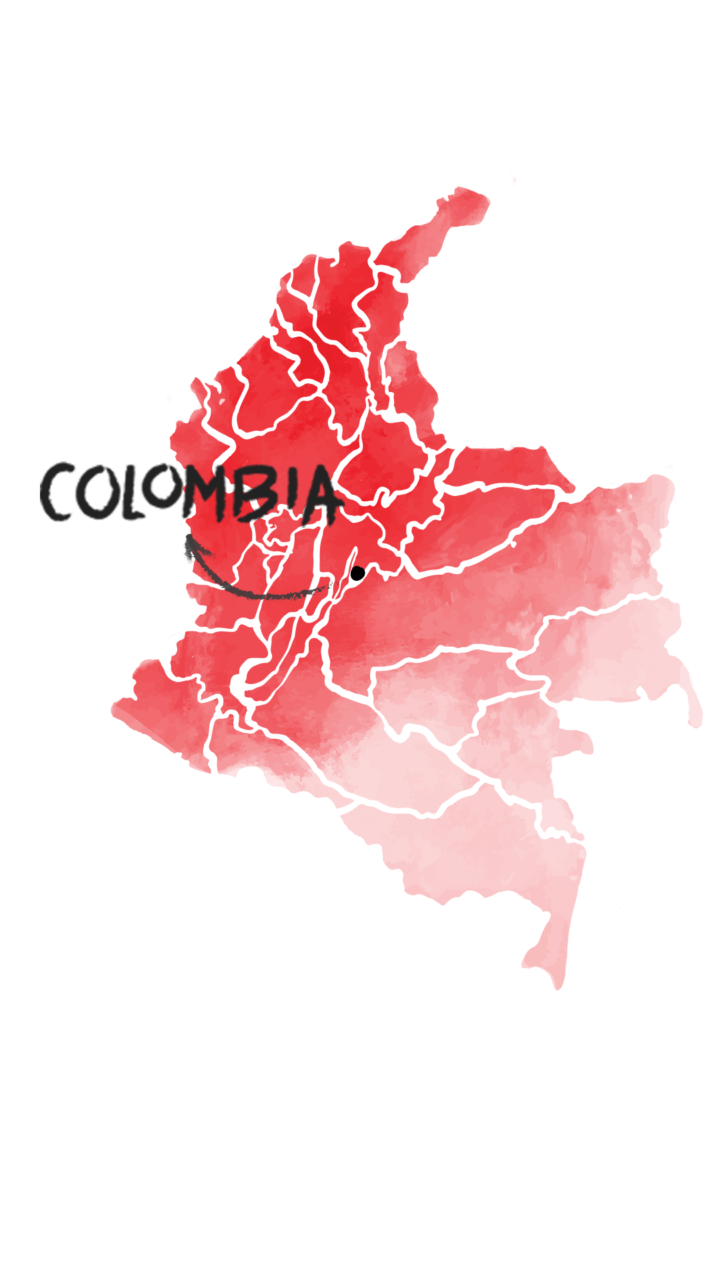
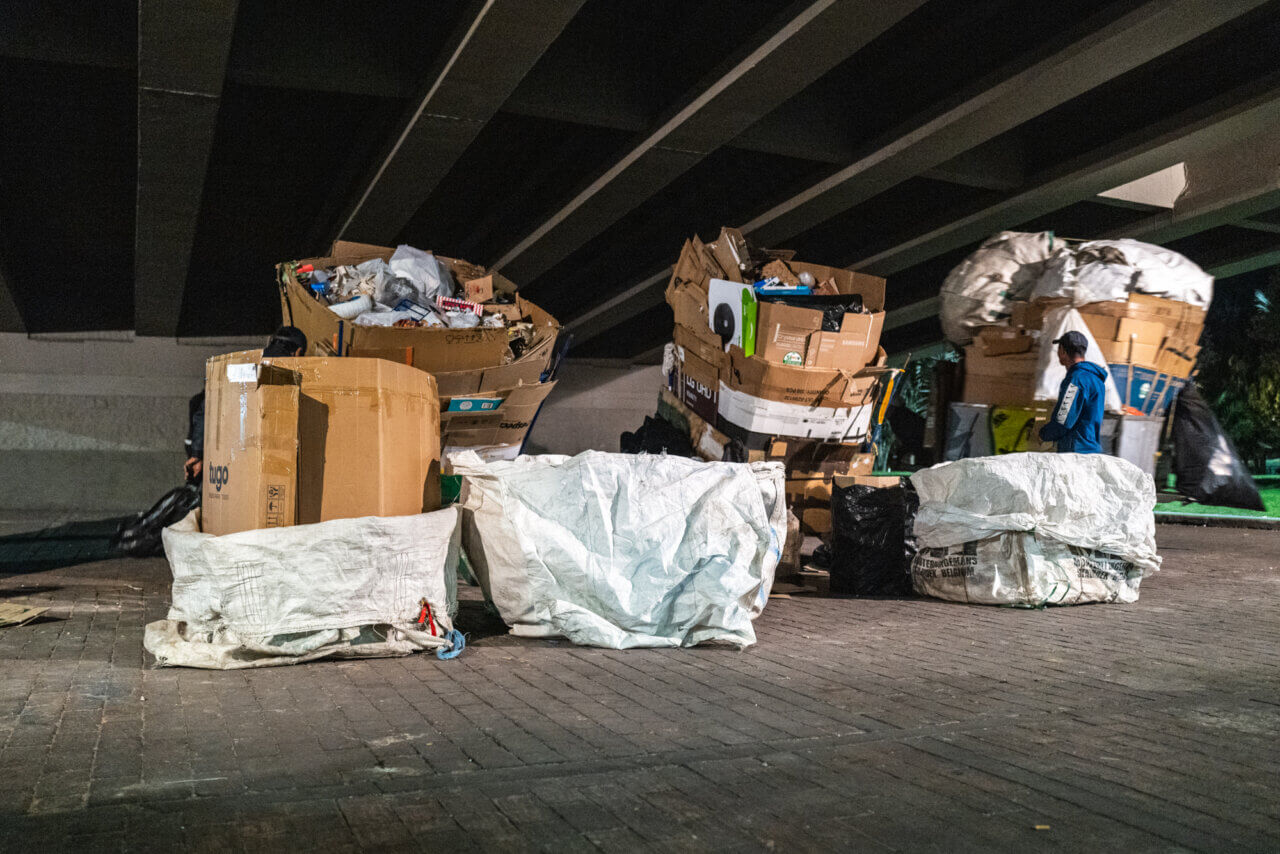
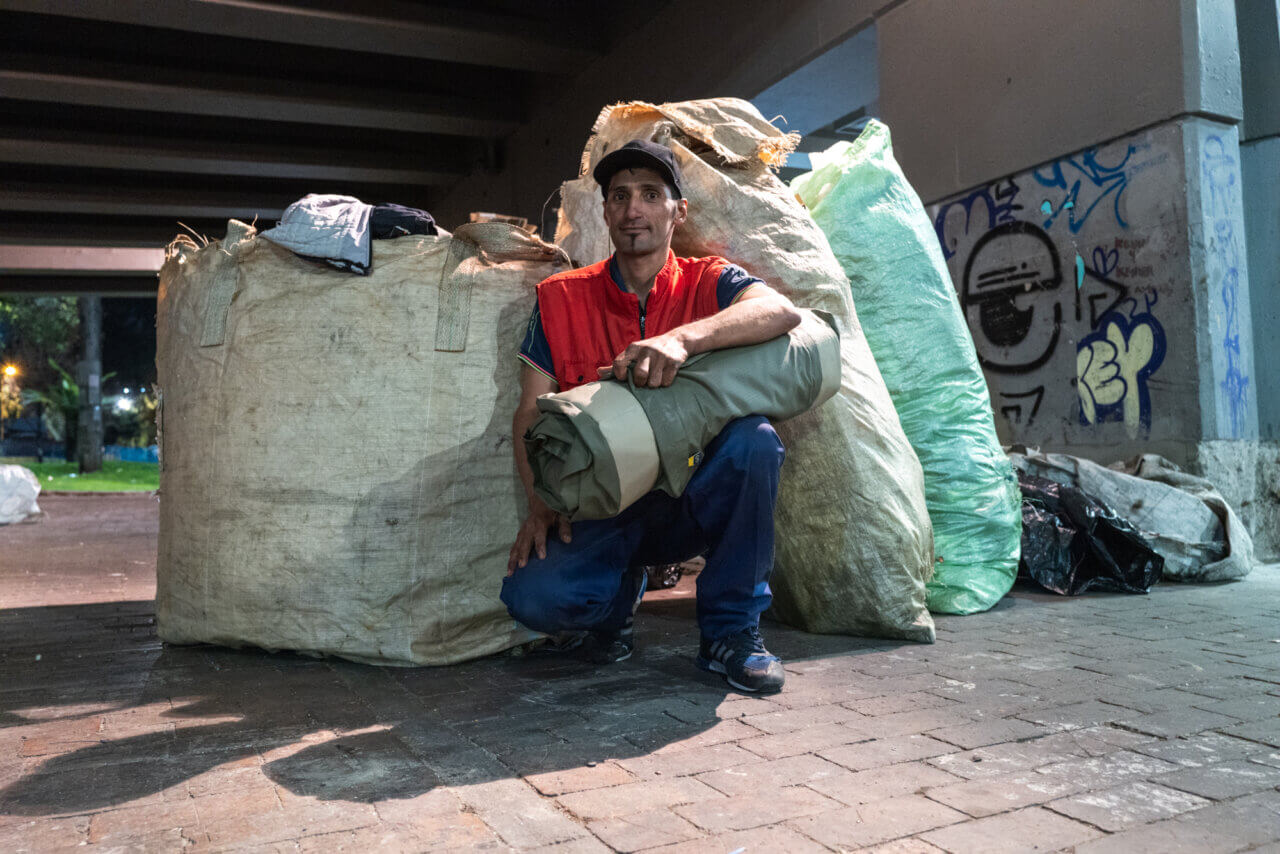
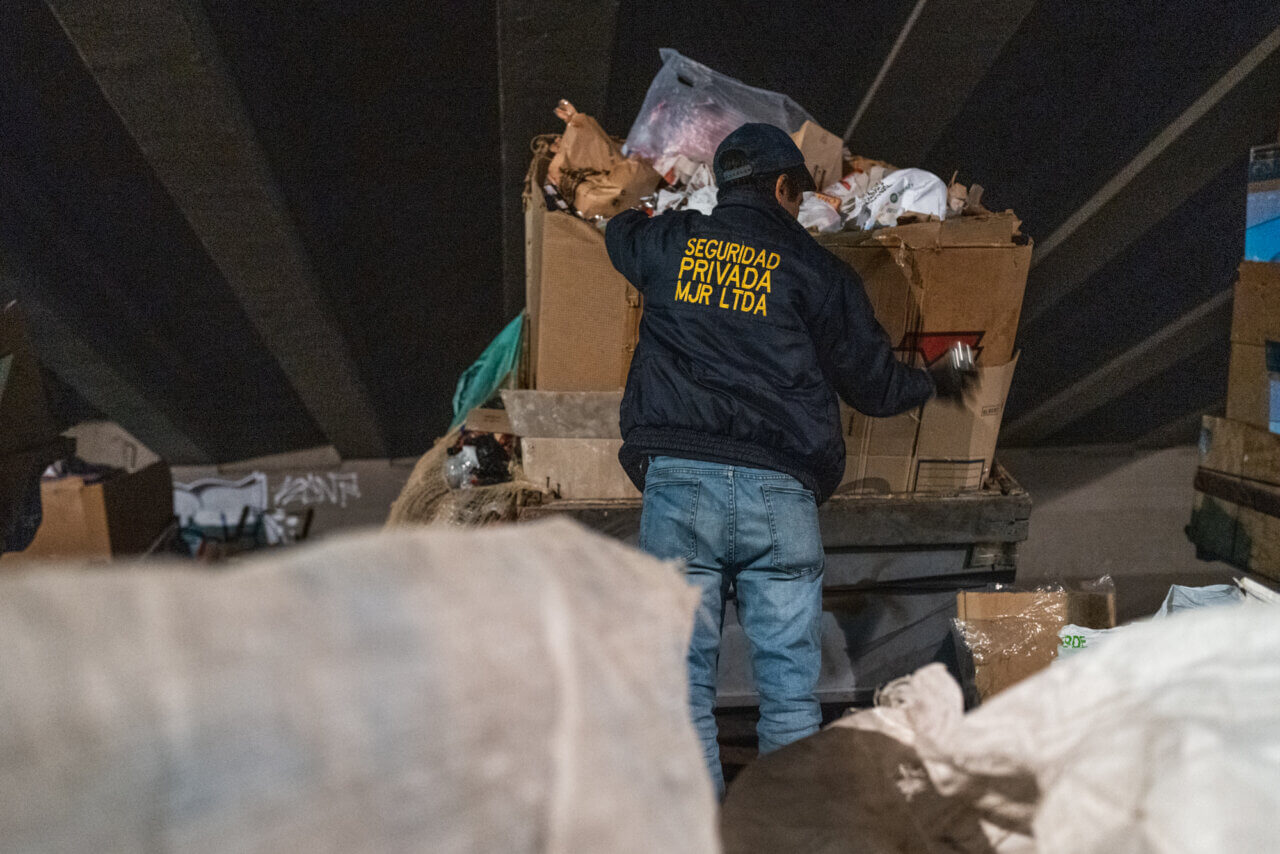
MERCEDES
Mercedes, a Bogotá native, has been a recycler for the past 40 years. This job has helped her to bring her children get ahead in life. “I have 7 children, 5 girls, and 2 boys. And I love them, but sometimes I have very little to offer them.” Like many of the people here, Mercedes provides for her family with the unlimited strength of a mother’s love. Yet, a report on the country’s economic outlook, prepared by the Organization for Economic Cooperation and Development, noted that Colombia is one of the most unequal in Latin America and that poverty is inherited in more than 10 generations.
“We are all in this together. Alone it is too dangerous so we need to stick together. We are all united and if anything happens, we all rise.”
– Mercedes
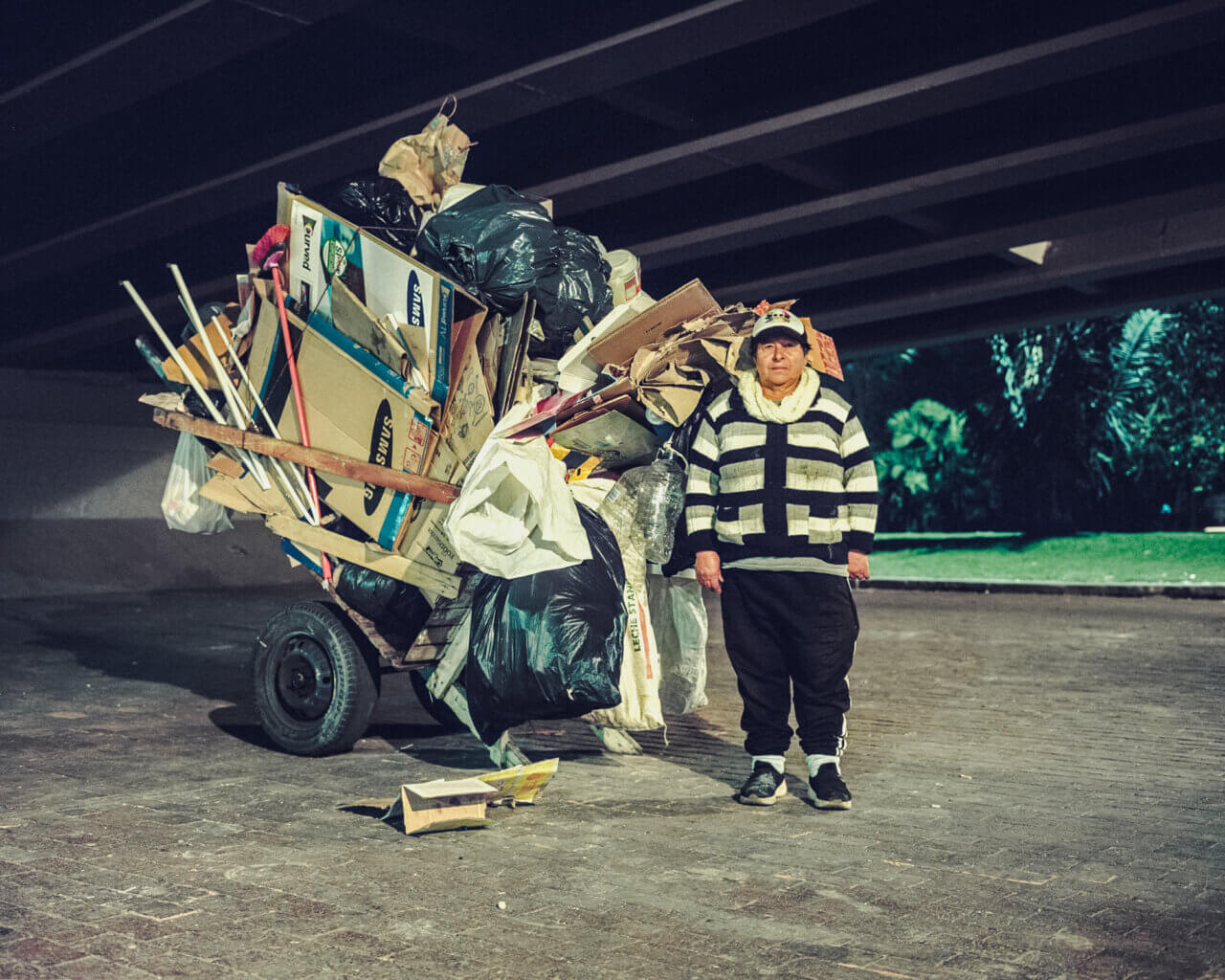
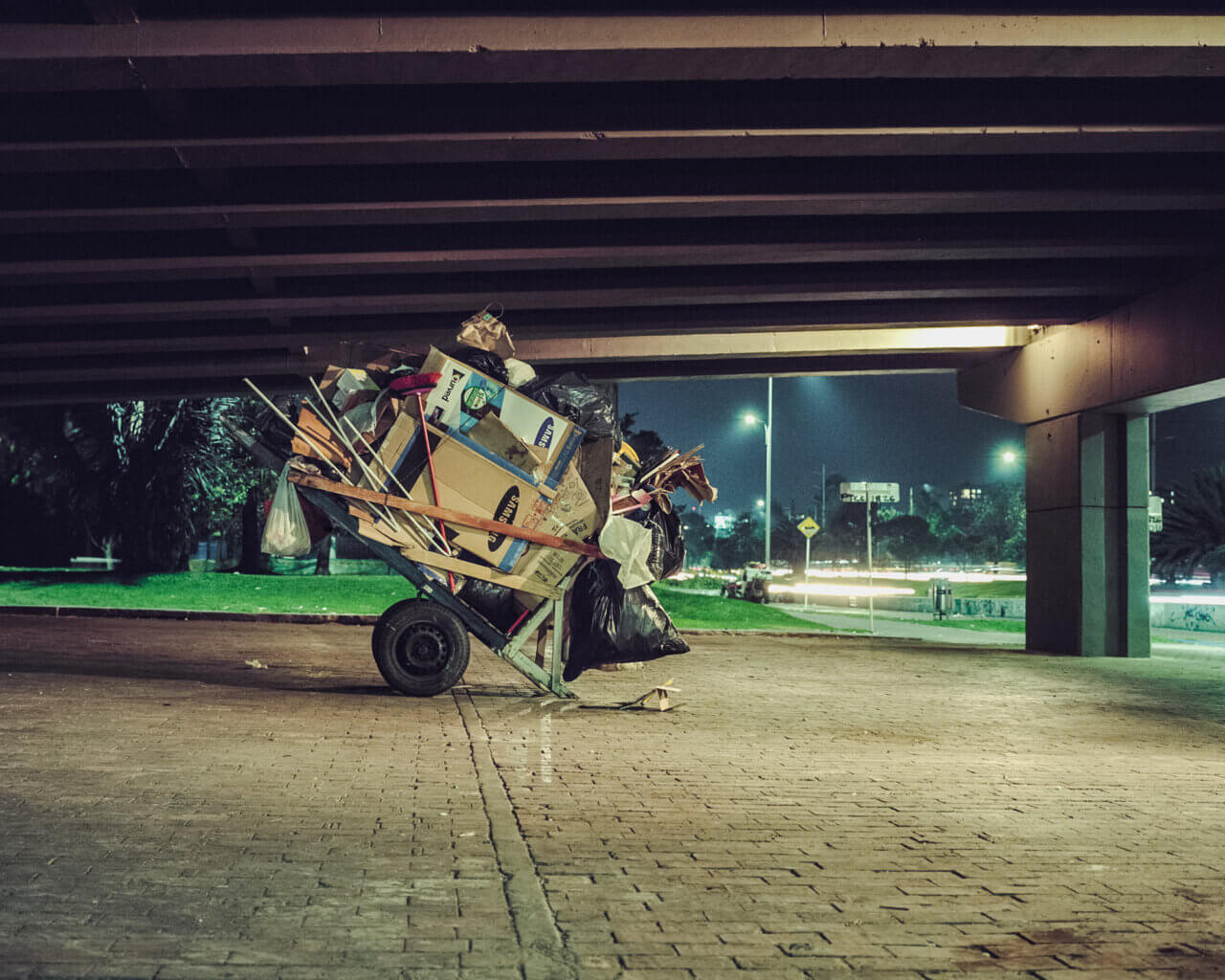
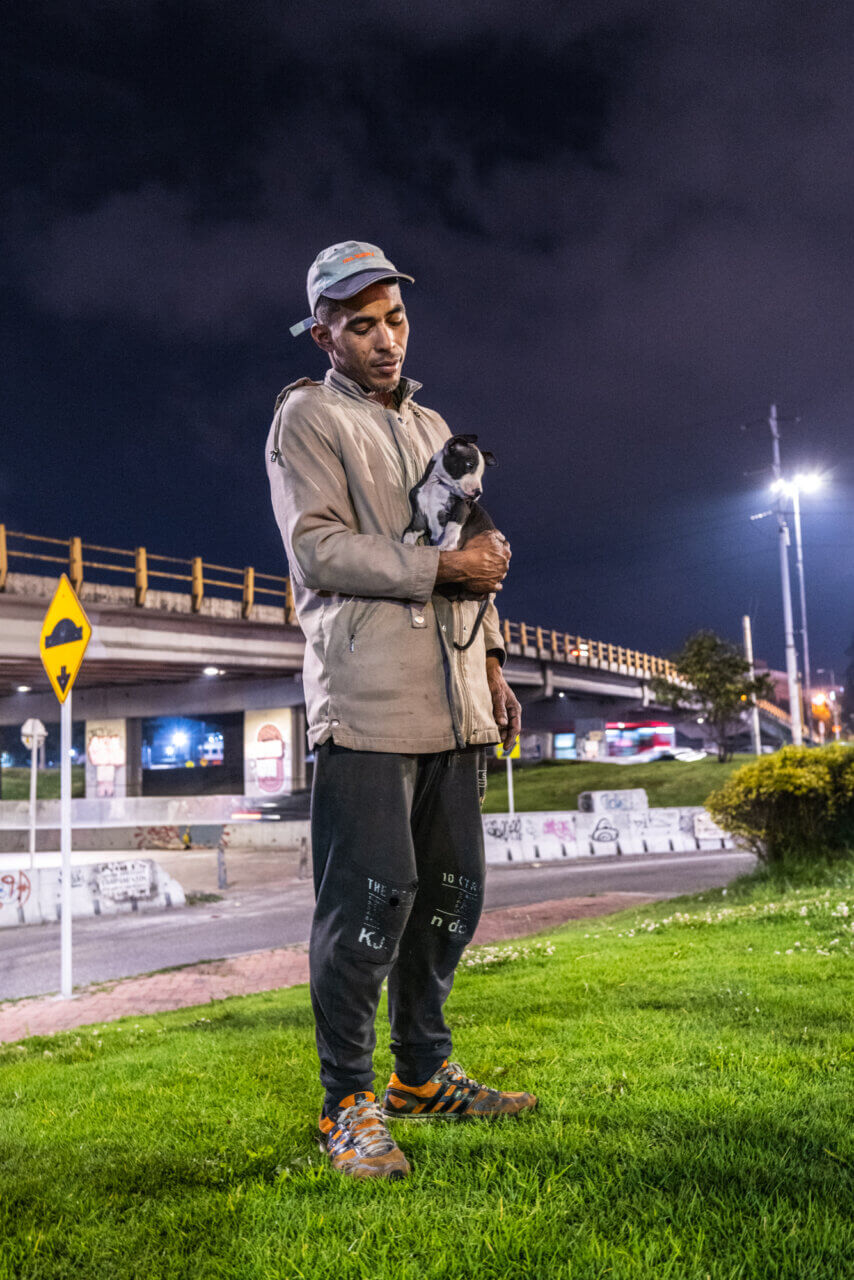
WILLIAM
Since most of these people spend the night outside, gathered around each other under bridges, and sleeping on their carts, the Shelterbag seemed like a perfect solution. During our first distribution, we met William (43) and his two dogs Zahira & Guerrero. Zahira is a tiny puppy he found in the trash the night before and has taken under his wing, as “his dogs are his life”.
William made the journey from Venezuela on foot, and now owns a motorized tricycle that he uses 7 nights a week to recycle. We agreed to meet him again two days later, to hear his feedback on sleeping in the Shelterbag.
William still remembers his walk from Venezuela to Colombia. “Just thinking about it makes my feet hurt”, he tells us. “It is not easy because you have to sleep on the street, put up with the cold and hunger.” The unpredictable changes in the weather take a toll on the mind, soul, and body.
Along the way, he has seen people dying. “I saw a lady, well a young girl, around 30 years old, who died with the baby in her belly. She died from hypothermia.” That day they could not fall asleep from the cold. When they woke up, she was pale and not moving. It haunts him. Lastly, William told us about his tricycle and how much he loves it. It gives him the opportunity to make an honest living.
“My dogs are my life.”
– William
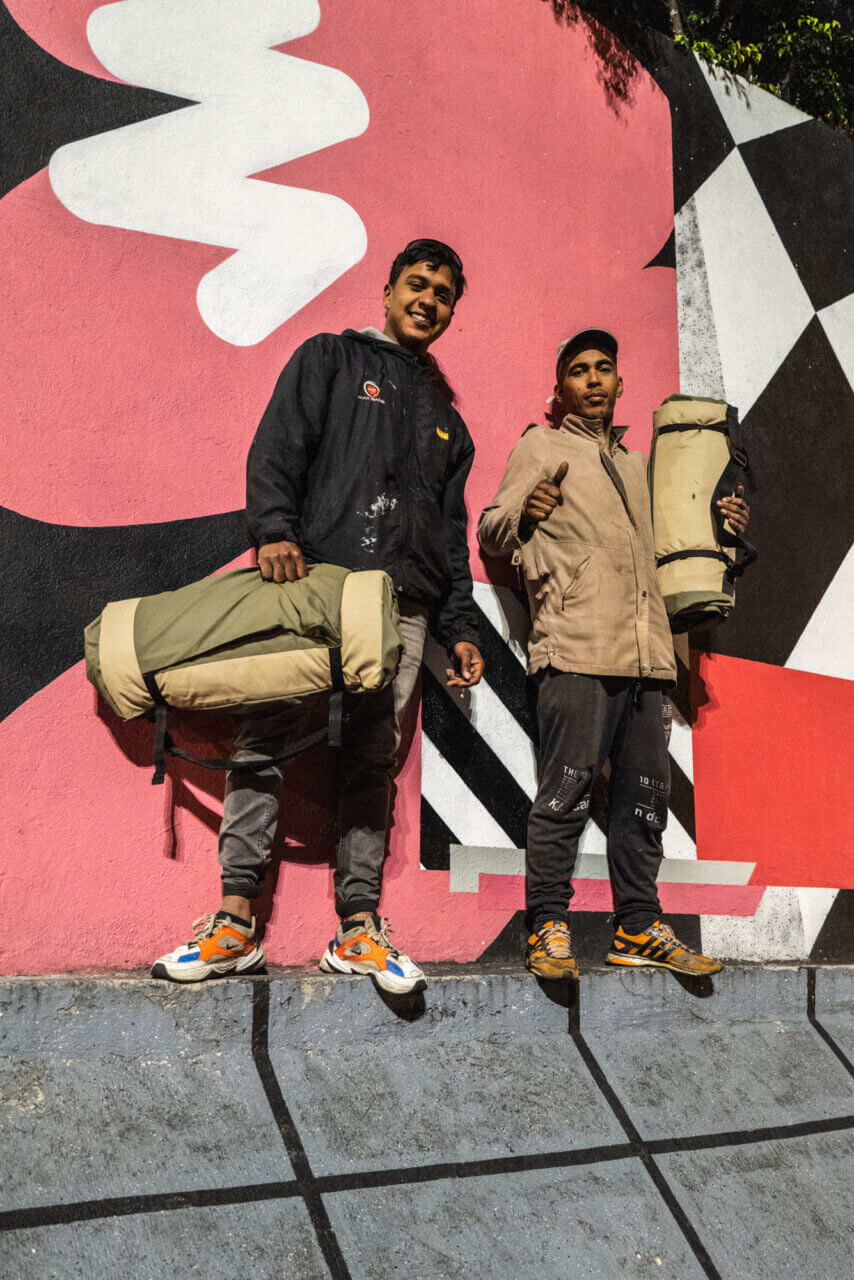
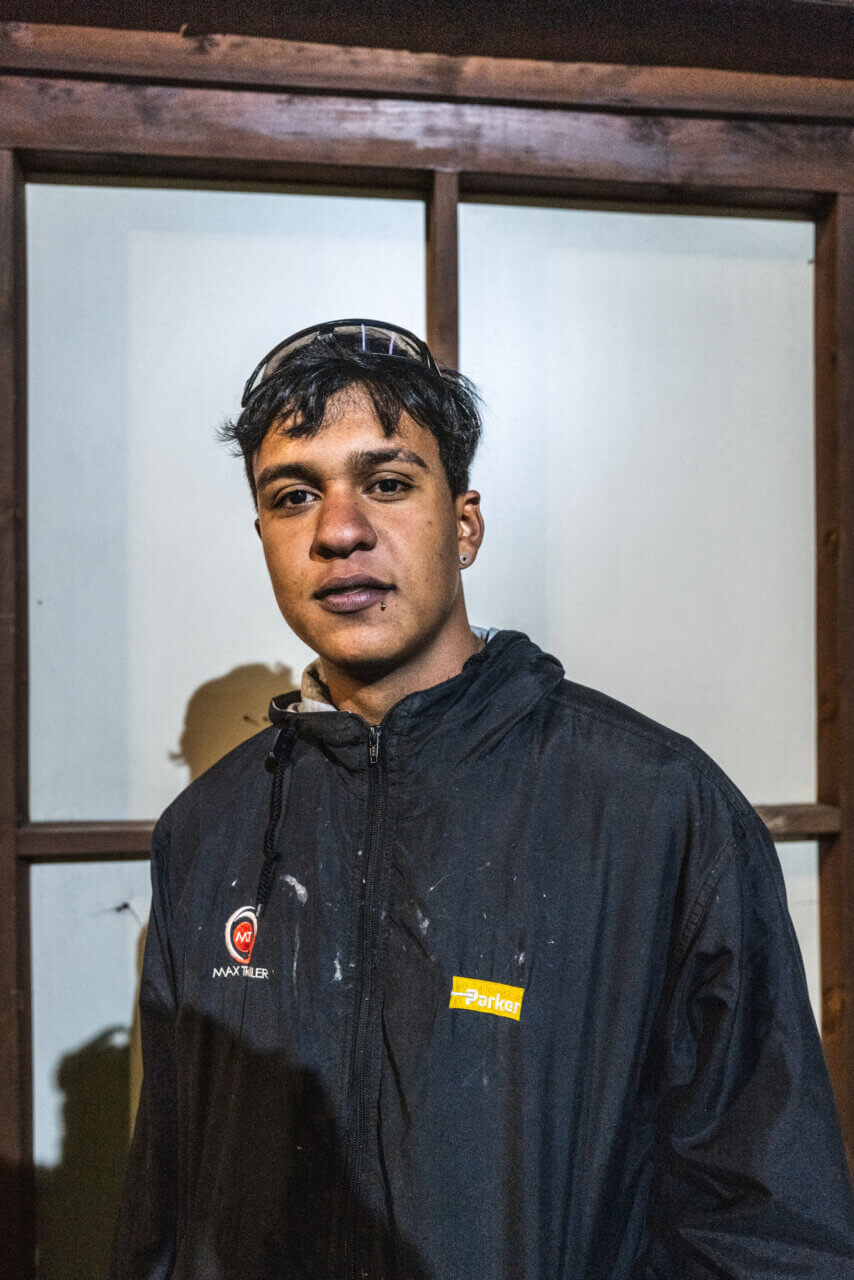
He came by foot from Venezuela to Arauca where he stayed for 4 months before arriving in Bogota. His first night sleeping on the street was a horrible and daring experience, he confronted many unfaced demons: cold, loneliness, and the terrifying notion of the unknown. He never knew what to expect at any moment there could be a shooting or a fight.
To keep himself warm and have a bite of food, every day, he is recycling, just like many others. Waking up every day and fighting for a better tomorrow. “Despite the fact that it is a job that many look down on, it gives me the opportunity to support myself”, Jean says smiling.
JEAN
Jean is 22 years old and he is a friend of William. When he came from Venezuela, wearing only a t-shirt and shorts, his hope was to experience the freedom of knowing another country, and the opportunity to build a future for himself.
Unfortunately, that future came with many hard moments, sleeping in conditions many would deem as nightmares, only having cardboard and blankets as a bed, and nothing but himself to keep warm.
His dream was simple: make a place of his own that he can call home. Maybe have a car or even a motorcycle and one day hopefully go back to Venezuela so he can finish his study in psychology.
“These people show enormous strength, character, and perseverance in a tough situation. Perhaps working hard towards a better future is the key to the positive mindset to keep going.”
– Bas
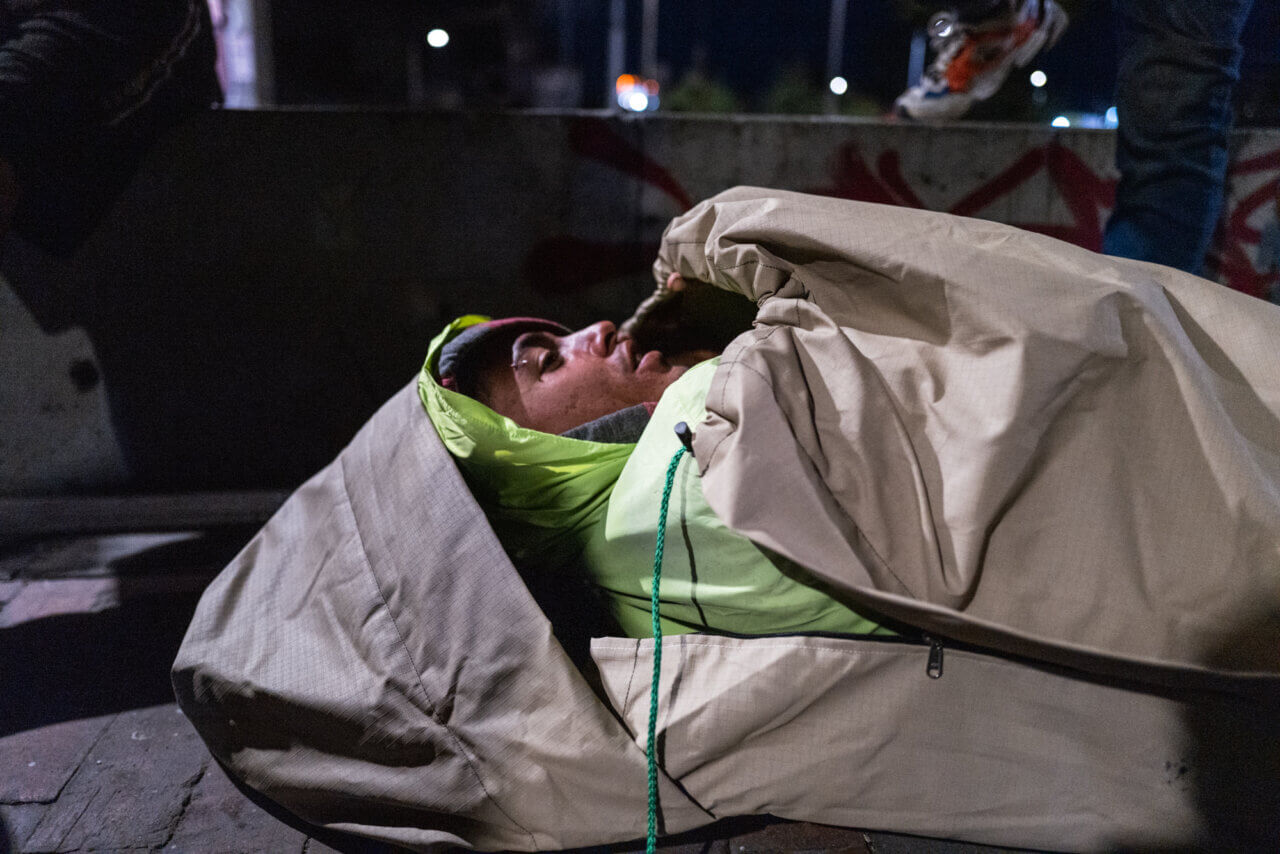
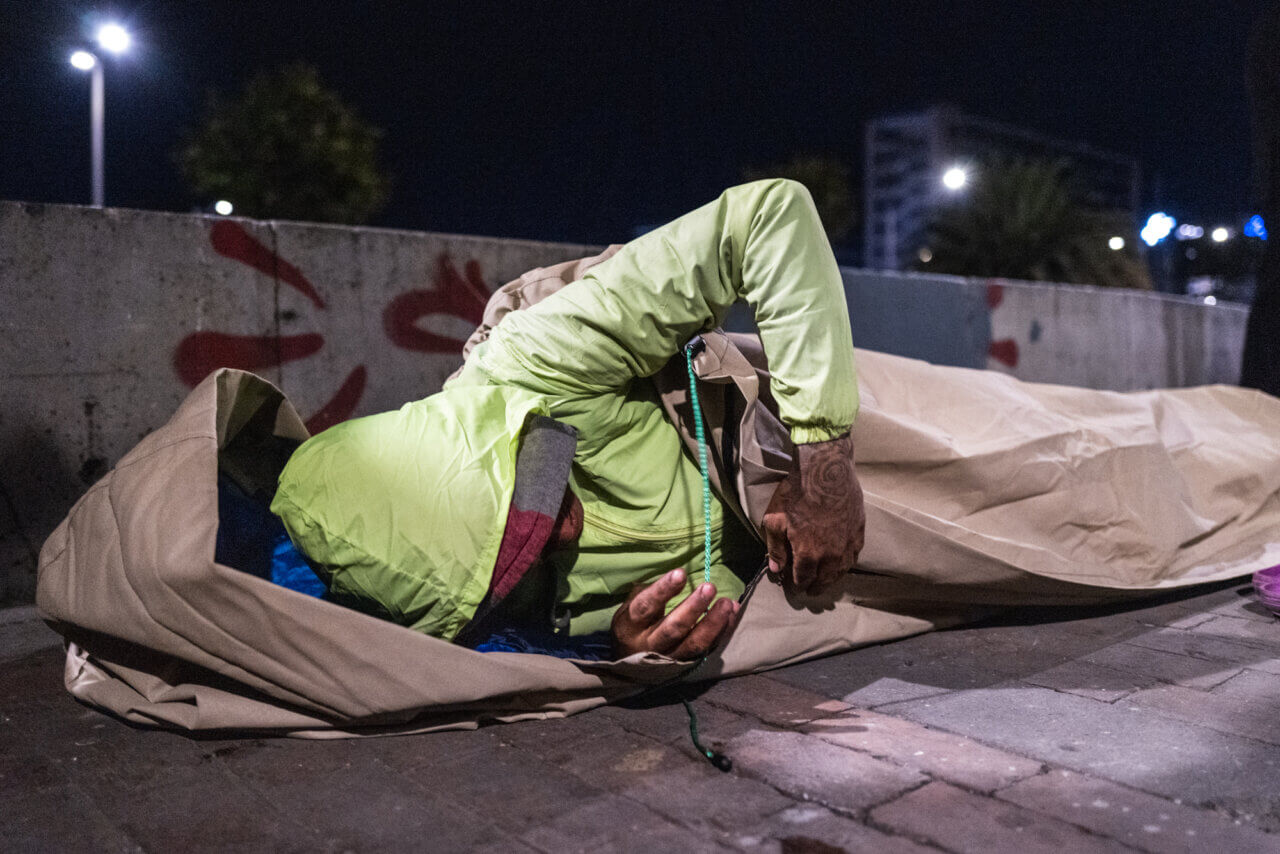
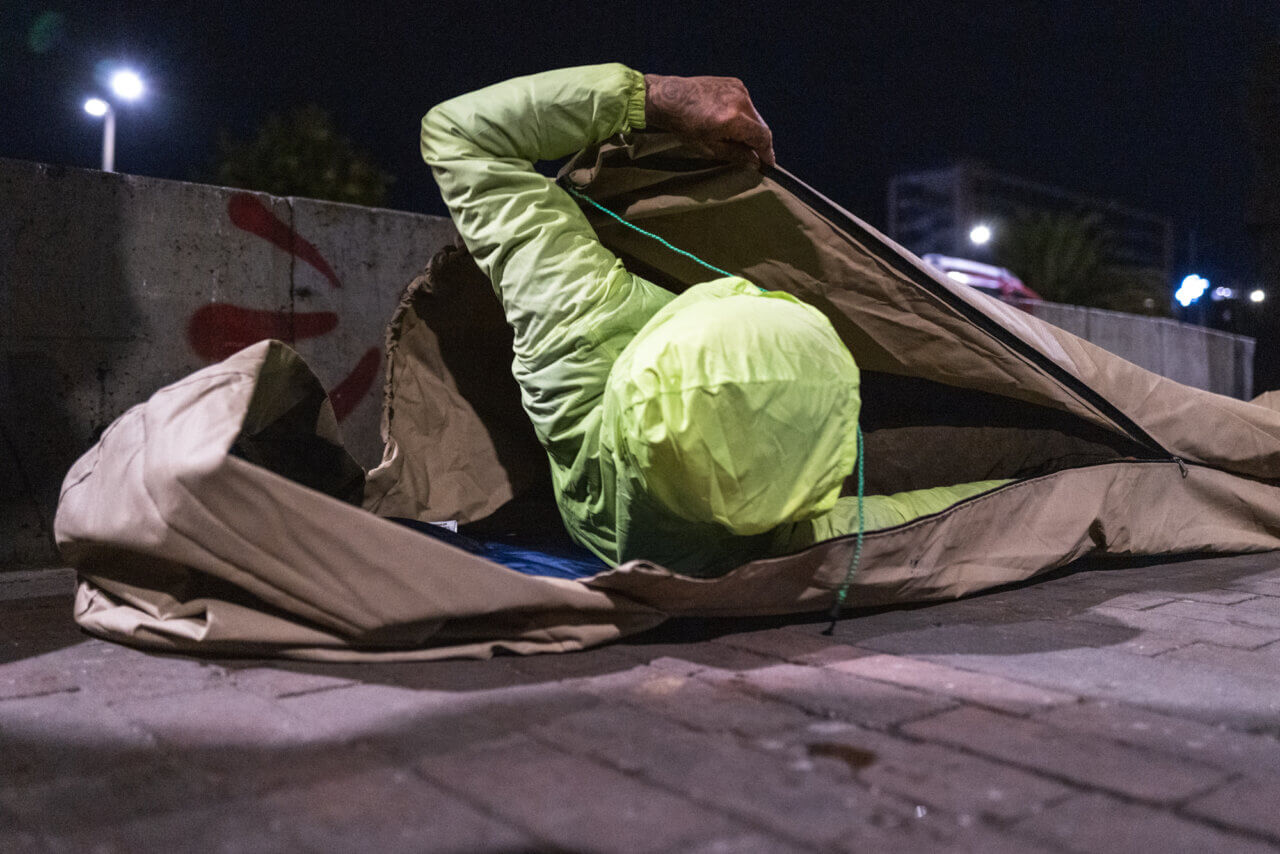
When he met Tony and Bas he was struck by their compassion: “They are good people, they are humble, they cared about us, and it is rare for people to do that. Thank you very much for the Shelterbag.”
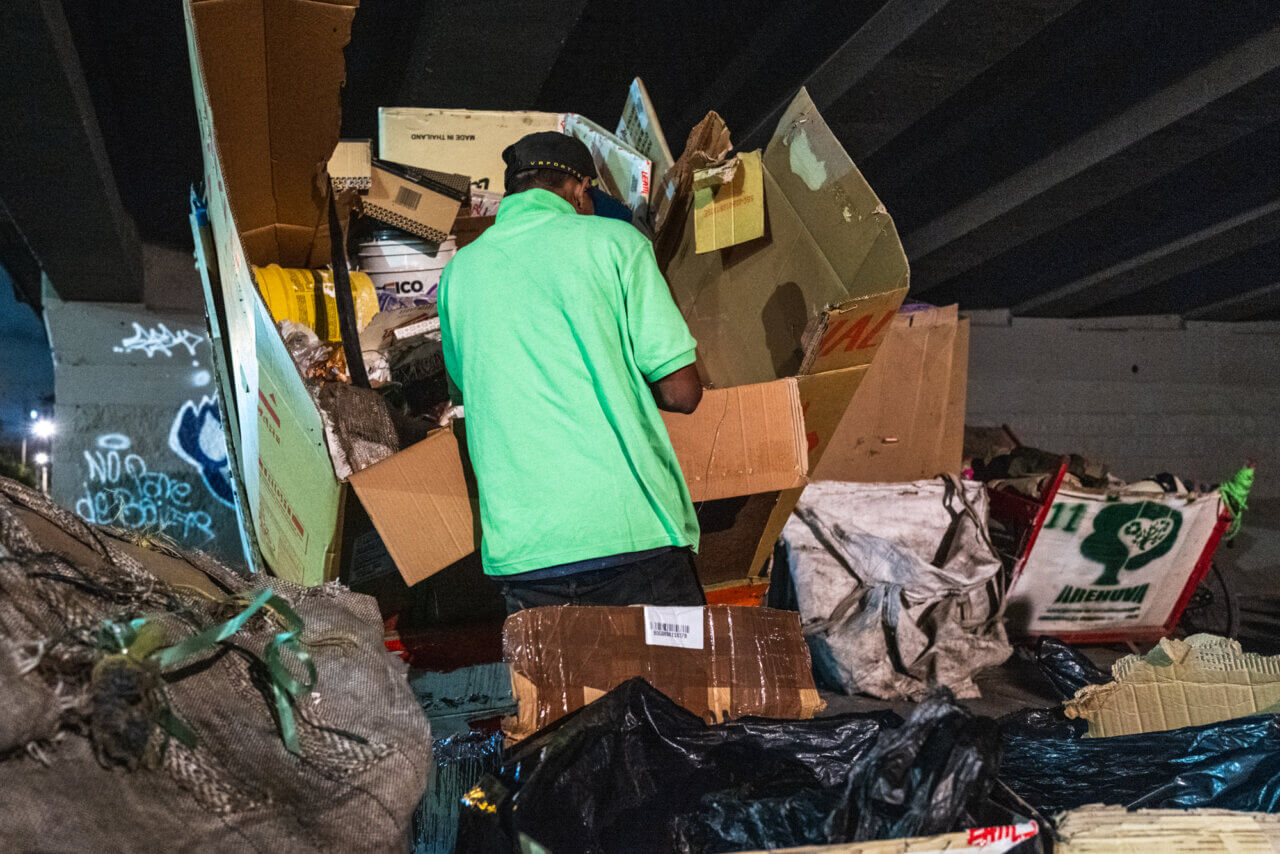
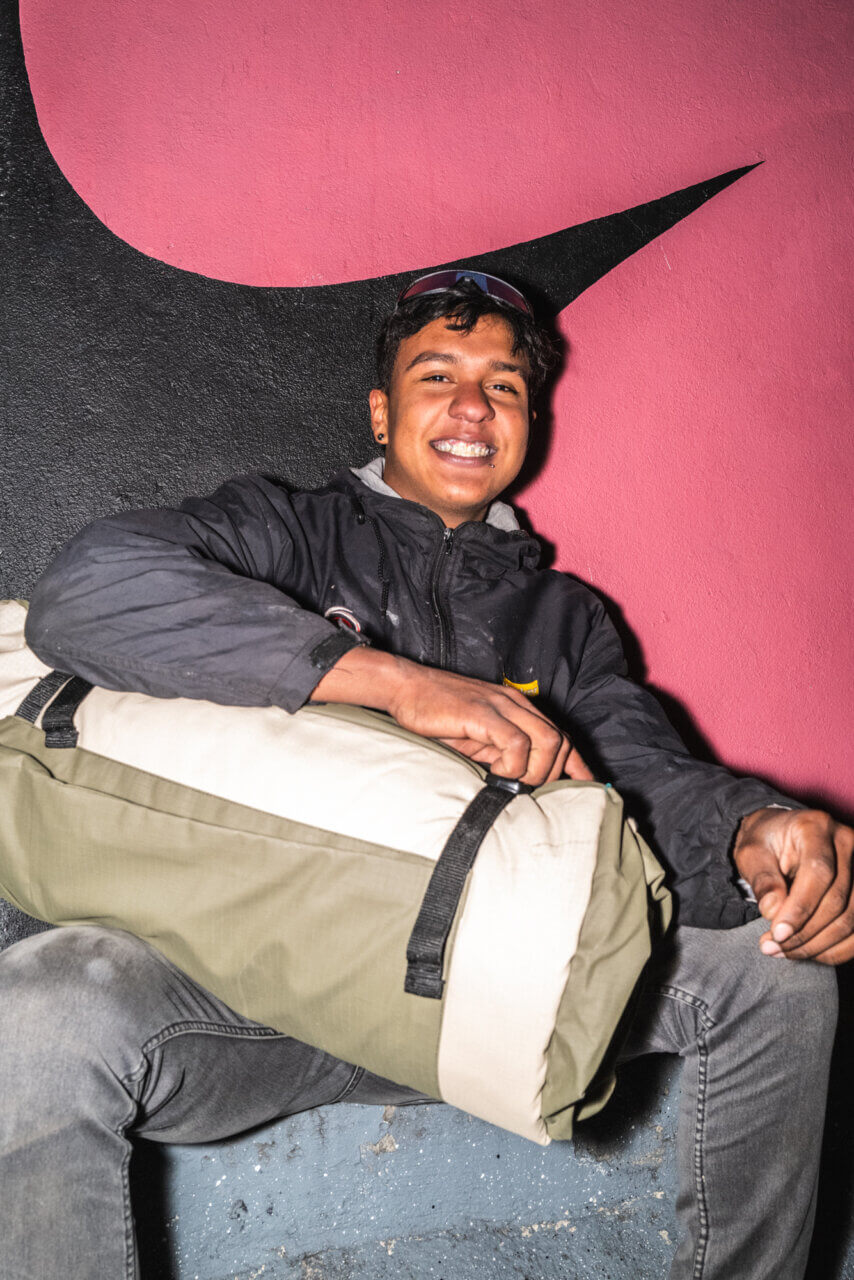
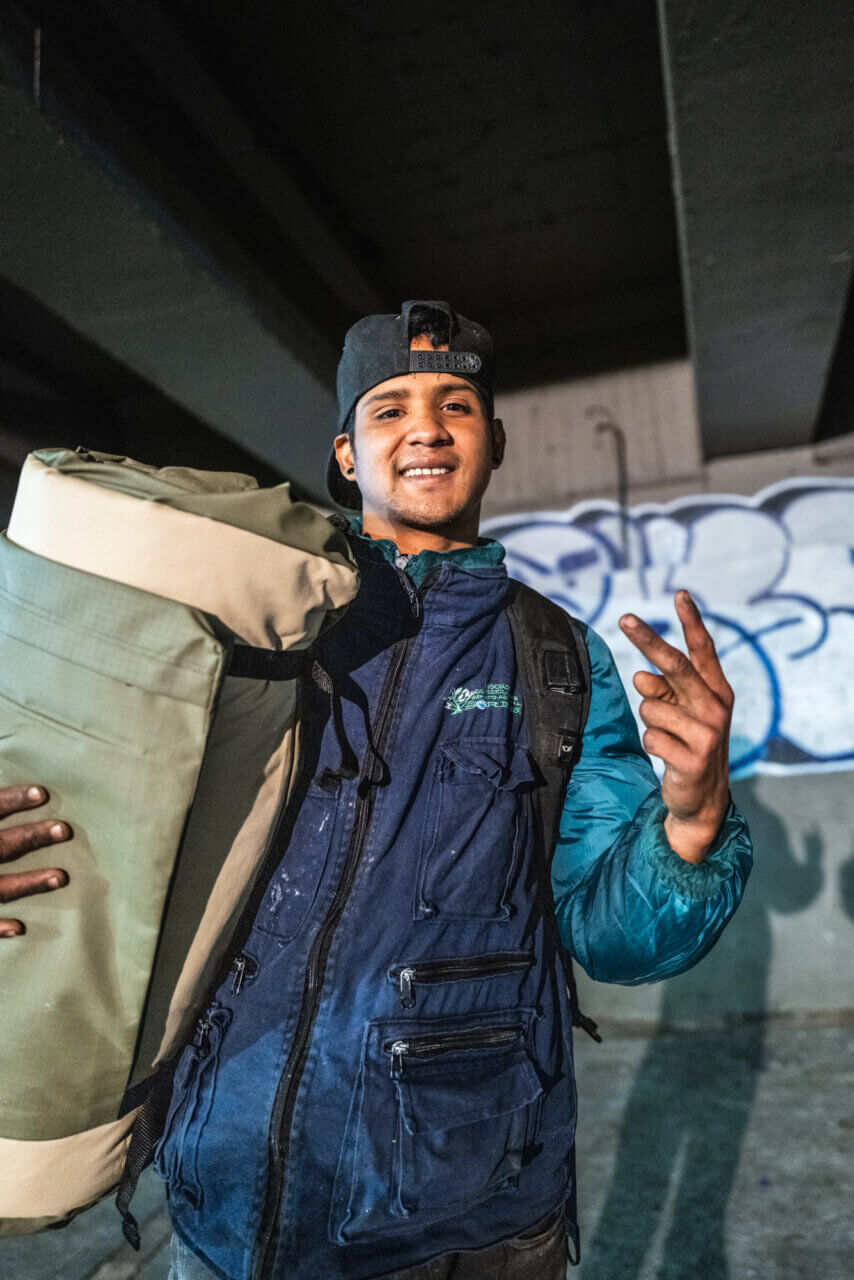
Recycling has become a generational endeavor as it is the only means to sustain one’s family. Unfortunately, this cycle does not nurture a healthy environment for children as they are expected to work from a young age, under dangerous circumstances. Children often end up having to provide for their families since half of the population over 65 does not receive any type of pension. This pattern will resurface in their future as it is the only mean of getting an income that has been shown to them before, and they lack educational opportunities.
We hope for a future where children will get the chance to get an education instead of having to provide food and shelter.
Read more about how our distribution partner Paporti is working to provide the children of Bogotá with opportunities to break the cycle of generational poverty.
With your periodic donation, we can continue to produce sustainable Sheltersuits, create more jobs and offer warmth and dignity to the most vulnerable people.
For this ongoing project, we engage with unhoused communities in various cities. The intimate documentary reflects the unraveling of society and exposes the equal measures of strength and vulnerability of each of its characters.
By capturing these raw moments in a new light, we challenge the mainstream representation of a growing, forgotten group. It reminds us that people who experience homelessness should neither be labeled nor disregarded. Everyone has a story to tell.